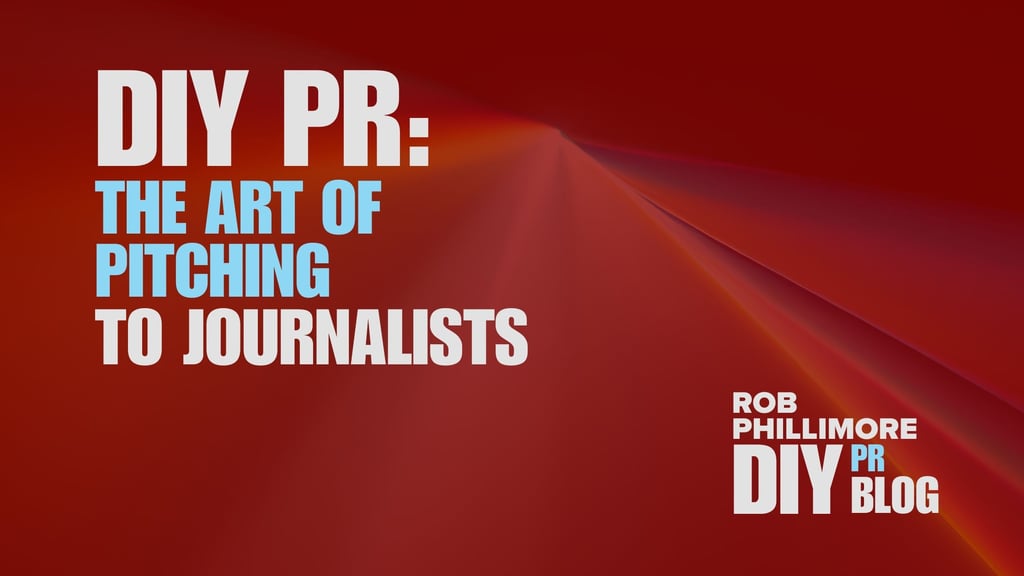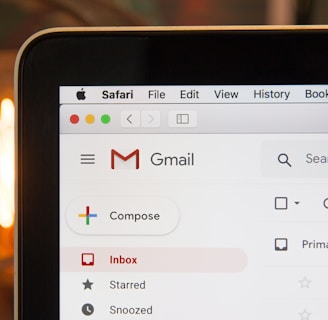DIY PR: The Art of Pitching to Journalists
Pitching to journalists is one of the most important skills PR professionals must master. If done correctly, it can secure media coverage that amplifies your brand’s visibility.


We've already covered how to write a winning press release and create the perfect media list. Now, let's dive into the pitch!
By the end of this guide, you’ll know how to craft compelling pitches that journalists actually read.
What is a Pitch?
In public relations, a pitch is the initial communication sent to journalists (usually via email or social media) proposing a news story they may want to cover.
It’s your opening shot—your first (and often only) chance to grab a journalist’s attention. If your pitch doesn’t hit the right notes quickly, it will likely be ignored.
Journalists receive hundreds of pitches every week, so yours needs to stand out.
Why Do You Need a Media Pitch?
A press release without a pitch is like a car without wheels—going nowhere but the trash heap.
Your pitch provides context, highlighting the key points of the announcement and making it easy for journalists to decide if it’s worth covering.
Press releases are factual and formal, but your pitch is an opportunity to create excitement in just a few sharp sentences.
What’s the news?
Why is it relevant?
Why should they care?
You have just a few seconds to hook the journalist before they move on to the next email.


Personalization is Key
A press release speaks to a broad audience, but your pitch should speak directly to one journalist.
Building a connection is essential. If you make a good impression, you could establish a long-term relationship with that journalist.
Explain why you’re reaching out to them specifically and why this news is relevant to their publication.
Keep it short—100-200 words or two to three paragraphs is ideal.
How to Write a Media Pitch
1. Craft a catchy subject line
Your subject line determines whether your email gets opened or ignored. It should be clear, intriguing, and relevant to the journalist’s beat.
Examples of strong subject lines:
"[Exclusive] New Report Reveals Widening Pay Gap Across UK"
"AI Startup Secures £15M to Enhance Government Efficiency"
"Young Entrepreneur Lands Senior Role at Google—Here’s How"
Examples of weak subject lines:
"New Pay Gap Report" (Too vague—what industry, what country?)
"AI Company Raises Funding" (How much? Why is this special?)
"Google Hires Young Entrepreneur" (Lacks intrigue and detail.)


2. Use the journalist’s name
A generic email won’t cut it. Address the journalist by name whenever possible—it shows effort and respect.
If a publication only lists a general contact email, do some research to find the right editor’s name.
If you can’t find a name, you can still personalize with something like: "Hi Team Mirror, hope you’re well!"
3. Start with the essentials
After greeting the journalist, immediately explain why you’re reaching out.
Example:
"Hi [Journalist's Name],
I’m reaching out with exciting news from [Company Name], which has just announced plans to open a new store in Central Wales following a year of record growth."


4. Add a little extra detail
Provide key details without overwhelming the journalist. If relevant, include:
The location and reason for expansion
Unique insights or data points
Notable figures involved
5. Offer an exclusive
Give the journalist a reason to be interested—offer an exclusive interview or early access to news.
Example:
"We’d love to invite you to the grand opening event and offer an exclusive interview with our CEO, [Name]."
6. Sign off & attach press release
End with a clear call to action. Let them know the press release is attached and invite them to reach out for more details.
Example:
"I’ve included the press release below. Let me know if you’d like more details or an interview opportunity."


Example Pitch Email
Subject Line: "Jugsby Opens First Wales Superstore—Grand Opening in May"
Email:
"Hi John,
I’m reaching out with exciting news from national retailer Jugsby, which has just announced plans to open its first superstore in Wales following record profits in 2024/25.
The grand opening will take place on May 7th in Cardiff, with local celebrity David Gwynn set to cut the ribbon.
We’d love to invite you to the event and offer an exclusive interview with Jugsby CEO, Peter Ferment.
I’ve included the press release below—let me know if you’re interested!
All the best, Rob.


Following Up on Your Pitch
Even the best pitches sometimes go unanswered. If you don’t hear back after a few days, send a polite follow-up email.
Example follow-up email:
"Hi John,
Just checking in on my email from earlier this week about the Jugsby store opening in Cardiff. Wondering if you’re interested in an interview with CEO Peter Ferment?
Let me know if you’d like me to arrange this!
Best, Rob"
Be mindful not to overdo follow-ups. One or two is fine—after that, move on.


Successful Pitching: Dos and Don'ts
✅ Do:
Pitch to the right journalist/publication
Personalize each email
Keep your pitch short and engaging
Follow up after a few days
❌ Don't:
Pitch blindly to irrelevant publications
Send unnewsworthy pitches
Spam journalists with excessive follow-ups
Need Help with PR?
Do you have a news story ready to pitch but don’t have the time to do it yourself? Let me handle it for you!
I offer professional press release distribution services, including broad newswire outreach and personalised media pitching. Send me a message for more info!
#PR #MediaRelations #Pitching
